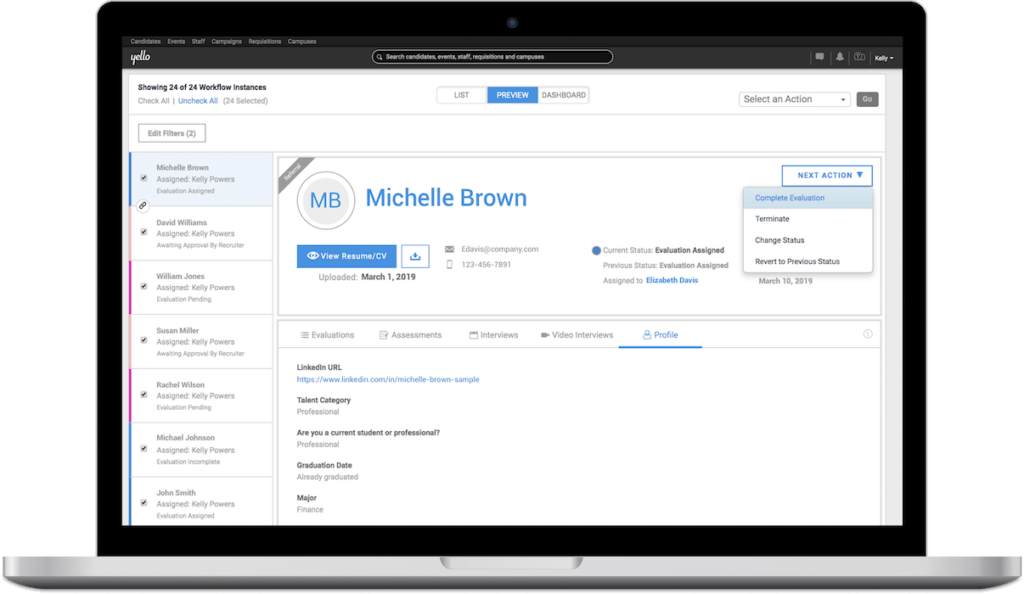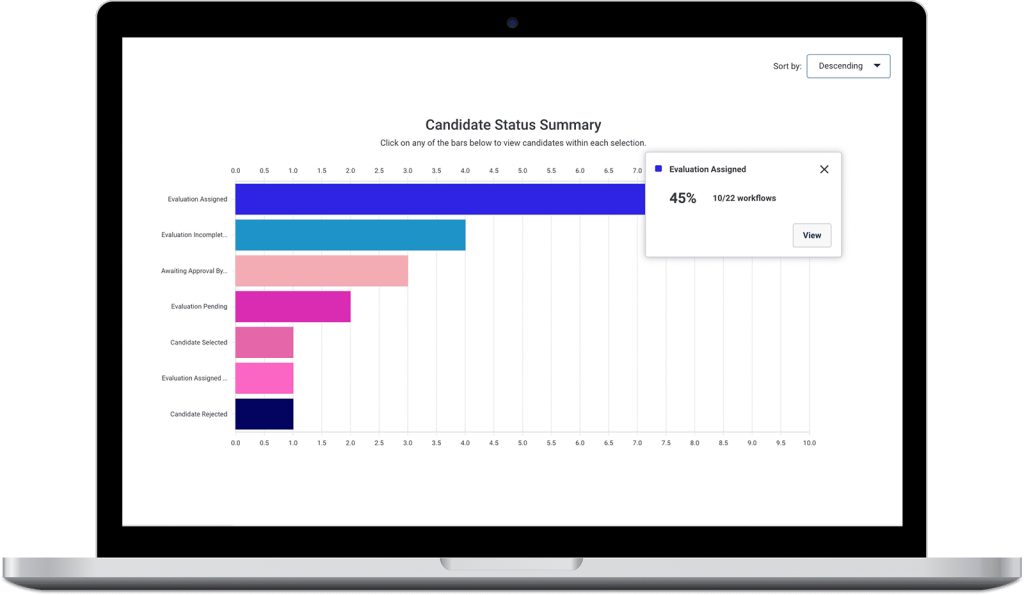According to research from staffing firm Robert Half, six in 10 workers say the most frustrating part of the job search is waiting to hear back from recruiters after the interview. And nearly half of those candidates will lose interest if there’s no update after one to two weeks.
Recruiters already know that candidates are frustrated — because they’re on the front lines, interacting with them every day. But it’s not just candidates who are frustrated.
Every recruiter knows that delays in feedback are often caused by interviewers and hiring managers who don’t complete evaluations on time or can’t make a decision quickly. Ironically, recruiters and candidates are in the same boat: they must painstakingly check in and ask for updates.
While some delays are an inevitable part of the hiring experience, a lengthy evaluation and feedback process can impact your candidate experience, employer brand and ultimately, your organization’s bottom line.
Why it matters
As the labor market becomes increasingly candidate-driven, an accelerated hiring process is more critical than ever before.
An overwhelming amount of candidates (81%) expect the hiring process to take two weeks at most. Bottlenecks can happen anywhere in a typical hiring process, but recruiters and candidates point to evaluations and feedback as the most common pain point. These frequent delays can make the difference between impressing your top candidates or falling short.
But there’s more at stake here than disappointed candidates. The majority of candidates have accepted another offer because they waited too long to hear back about a preferred role — and this mindset spans across all generations. Gen Z is the generation most likely to hold out for an offer from their first-choice employer, but only one-third of Gen Z-ers would definitely wait for that offer — the majority would still accept a second choice or weigh the decision based on salary.
Ultimately, an inefficient candidate evaluation process won’t only hurt your employer brand. Talent acquisition teams need to rethink their feedback strategy or risk missing out on the top talent needed to move their organizations forward.
How you can keep up
Evaluations are tricky because they’re emotional. Recruiters have to navigate delicate conversations with candidates, often while herding cats in the background to get feedback from their colleagues. Whether it’s good or bad news, recruiters know that no conversation is as simple as it seems — especially when their feedback can make a significant impact on a candidate’s life.
A positive evaluation experience is one of the most important factors when candidates are deciding to accept an offer, too. According to Brandon Hall, nearly half of candidates point to the evaluation stage as the most important impact point for candidate experience during the hiring process.
While candidate experience is about much more than speed, nothing makes a candidate feel more important than when a recruiter follows up the day after an interview. If your candidate is expecting multiple offers, even a short delay in extending an offer could mean losing candidates to another opportunity.
So what do accelerated evaluations look like? Top-performing teams use automation to streamline feedback. Among organizations who have made high-quality hires, nearly twice as many teams use more mature evaluation methods (i.e. technology and automation) to ensure they can secure top talent before competitors.
Bottom line: recruiting teams that use technology to automate evaluations and feedback loops ultimately provide a better candidate experience and recruit higher-quality candidates.
Yello’s Candidate Evaluations make feedback loops more reliable — helping your team share feedback from anywhere, extend offers faster and pinpoint any roadblocks. Here are some of Yello’s most popular evaluation features, and what current Yello clients have to say about them:
Simplify interview evaluation forms
Remove obstacles for recruiters and staff with streamlined evaluations and follow-up in one place — making it easy to provide feedback and make better hiring decisions.
- Mobile-friendly evaluation forms
- Configurable criteria and questions
- Assign evaluations to staff
- Include supplemental materials

Streamline evaluation routing and reminders
Speed up the hiring process with bulk assignments and automated reminders that ensure candidate evaluations — and hiring decisions — are completed promptly.
- Automated staff reminders
- Evaluation progress reports
- Actionable evaluation dashboard
- Linked to candidate profiles

Identify interview efficiencies and candidate trends
With complete visibility into program-wide evaluations, identify slow points in the hiring process or high-level candidate data trends to make improvements for the future.
- Track evaluation progress
- Maintain digital records
- Review top candidate trends
- Support audits and internal needs

What could your evaluation process look like?
Yello’s configurable, automated evaluation workflows are flexible, built to adapt to your team’s unique evaluation process. We can help you create a better experience for candidates and recruiters — and ensure you don’t lose out on top talent to more nimble competitors.


